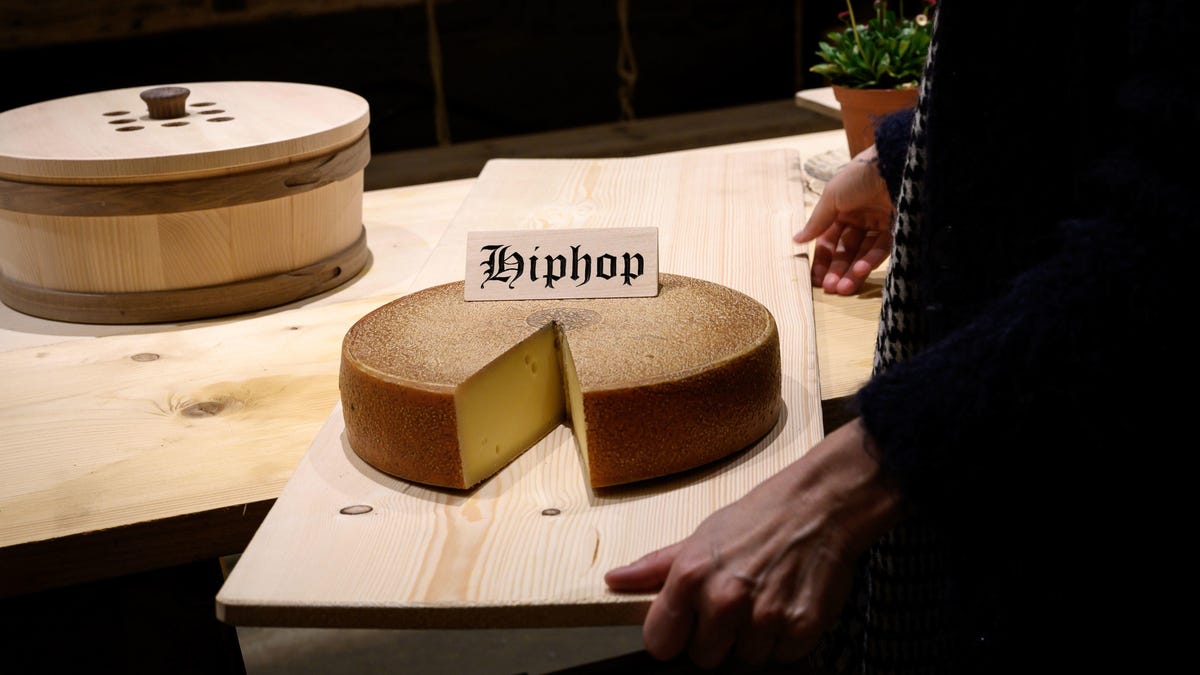The secret to better cheese might be hip-hop, scientists say
Swiss researchers played A Tribe called Quest, Mozart and Led Zeppelin for some wheels of cheese to see if they aged differently.

Apparently cheese ages better when exposed to hip-hop.
Here's a cheese pairing for you: Emmental cheese and hip-hop.
Researchers in Switzerland undertook an experiment to see how exposing cheese to different types of music would affect the aging process. Or as the Bern University of Arts described it, the "bio-acoustic impact of sound waves affects metabolic processes in cheese." Turns out, hip-hop has the most desirable effects.
The process, which Reuters reported earlier in the month, involved 22-pound wheels of Emmental put in wooden crates last September. Mini transmitters conducted the energy of songs like Stairway to Heaven by Led Zeppelin, We Got it from Here by A Tribe Called Quest and even Mozart's Magic Flute, 24 hours a day for 6 months.
Michael Harenberg, one of the researchers, told Reuters, "All the energy is directly resonating inside of the cheese."
A culinary jury did a blind taste-test twice and both times preferred the cheese that was exposed to hip-hop, citing texture, taste and appearance, according to Reuters.
That doesn't necessarily mean cheese makers should start bathing their cheeses in music.
In a report summary, researchers said they'll need to conduct more testing in order to determine if there is, in fact, a link between sound waves and the aging process. For now, they're calling the confirmation of their hypothesis "conceivable but not compelling."
Originally published at 7:22 a.m. PT.
Update at 9:30 a.m. PT: Adds information from Bern University of Arts.

